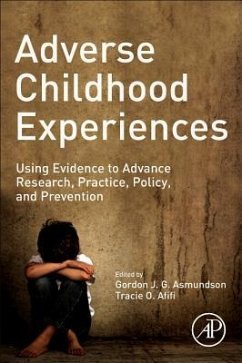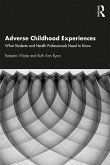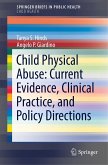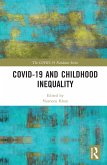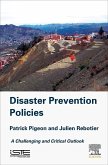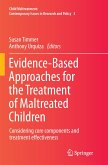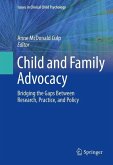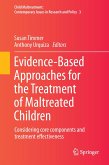Adverse Childhood Experiences: Using Evidence to Advance Research, Practice, Policy, and Prevention defines ACEs, provides a summary of the past 20 years of ACEs research, as well as provides guidance for the future directions for the field. It includes a review of the original ACEs Study, definitions of ACEs, and how ACEs are typically assessed. Other content includes a review of how ACEs are related to mental and physical health outcome, the neurodevelopmental mechanisms linking ACEs to psychopathology, sexual violence and sexual health outcomes, and violence across the lifespan. Important and contemporary issues in the field, like reconsidering how ACEs should be defined and assessed, the appropriateness of routine ACEs screening, thinking about ACEs from a public health and global perspective, strategies for preventing ACEs, understanding ACEs and trauma-informed care and resilience, and the importance of safe stable and nurturing environments for children are discussed. Adverse Childhood Experiences is a useful evidence-based resource for professionals working with children and families, including physicians, nurses, social workers, psychologists, lawyers, judges, as well as public health leaders, policy makers, and government delegates.
Hinweis: Dieser Artikel kann nur an eine deutsche Lieferadresse ausgeliefert werden.
Hinweis: Dieser Artikel kann nur an eine deutsche Lieferadresse ausgeliefert werden.
"This edited book is a very useful compilation of research and perspectives on the rapidly expanding field of Adverse Childhood Experiences. Its chapters offer a systematic coverage of issues by some of the leading authorities on the topic. Two features are of particular value and interest. Several of the contributors provide important criticisms and cautions about various aspects of the field and its development, such as the definitions of adversities and the proposals to screen for universal screening. In addition, many contributors provide excellent suggestions for future research. Given that much of the ACE literature is scattered in a variety of interdisciplinary journals, this book is a good starting place to get a broad and nuanced exposure to the topic." --David Finkelhor, Department of Sociology, University of New Hampshire
"This outstanding compilation is an indispensable reference for all researchers, clinicians and policy-makers engaged in work on adverse childhood experiences. It provides a history of the landmark ACEs Study and a scientific synthesis of the health outcomes of ACEs, while indicating how the original ACEs Study may inspire future development. The collection has a strong focus on public health and prevention, and embraces the imperative to use research to inform practice. A range of chapters consider issues spanning family environments to social settings, and consider issues from the neuroscience of trauma to resilience and growth. This book should help inform future research directions, clinical practice, and policy approaches to better prevent, identify and respond to childhood adversities." --Professor Ben Mathews, Director, Childhood Adversity Research Program, Queensland University of Technology, Brisbane, Australia; Adjunct Professor, Johns Hopkins University, Bloomberg School of Public Health
"This outstanding compilation is an indispensable reference for all researchers, clinicians and policy-makers engaged in work on adverse childhood experiences. It provides a history of the landmark ACEs Study and a scientific synthesis of the health outcomes of ACEs, while indicating how the original ACEs Study may inspire future development. The collection has a strong focus on public health and prevention, and embraces the imperative to use research to inform practice. A range of chapters consider issues spanning family environments to social settings, and consider issues from the neuroscience of trauma to resilience and growth. This book should help inform future research directions, clinical practice, and policy approaches to better prevent, identify and respond to childhood adversities." --Professor Ben Mathews, Director, Childhood Adversity Research Program, Queensland University of Technology, Brisbane, Australia; Adjunct Professor, Johns Hopkins University, Bloomberg School of Public Health

